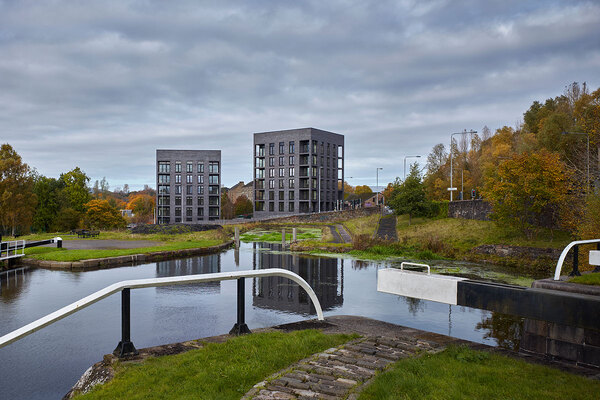
Stew is Head of Policy at Energy Saving Trust. Energy Saving Trust is a trusted, independent voice, with over 25 years’ experience of ...more
Heat pumps are vital to our carbon-free future, so we must significantly scale up their use
Stew Horne says that it is time for the government to push for much greater take-up of heat pumps
UK homes account for a fifth of the UK’s carbon emissions. With this is mind, it is becoming more apparent that we need to rethink the way we heat our homes. Heat pumps are one of the key technologies that will help us to get to net zero.
“Good insulation is a key first step to making homes more energy efficient and it often makes sense to upgrade any insulation before upgrading the heating system”
This low-carbon heating system alternative can be installed in most property types, but many people are still hesitant about the benefits of air-source and ground heat pumps. This needs to change, and fast.
Unless heat pumps start to become the norm, the UK will not meet its net zero targets – and social landlords have a vital part to play in this.
So, what is this low-carbon heating alternative? An air-source heat pump looks similar to an air conditioning unit on the outside of buildings and works by using electricity to draw the heat from the outside air and use this energy to provide heating and hot water.
This is a sight we will all become more accustomed to as heat pumps move from the margins to the mainstream. Indeed, the UK government has indicated it wants to end putting gas and oil boilers in new build homes from 2025.
The Climate Change Committee suggested that 3.3 million heat pumps need to be installed in existing homes by 2030, rising to eight million by 2035, to reach the UK’s net zero targets. This is a sizeable ambition, and we need collective action from policy-makers, landlords, local authorities, businesses and homeowners alike to get us there.
“We firmly believe that we need to make the move away from fossil fuel boilers attractive, simple and fair for all”
More than 80% of the homes we will be living in by 2050 are already built. Adapting or retrofitting existing houses to improve their energy efficiency and reduce the amount of energy required for heating is therefore essential for a carbon-free future.
Good insulation is a key first step to making homes more energy efficient and it often makes sense to upgrade any insulation before upgrading the heating system. Each home is different and because heat pumps run on electricity, which is more expensive than gas, bespoke advice on how efficient a heat pump would be in a home is always advised. The carbon content of mains electricity has reduced dramatically in recent years, meaning heat pumps will always help to cut carbon emissions.
One of the targets in the government’s Energy White Paper is that all social rented homes should have an energy performance certificate (EPC) rating of C by 2035 where possible. Many housing providers are already making considerable strides. For example, in April this year, five of the UK’s largest housing associations signed a partnership to improve the energy efficiency of their 300,000 homes and develop low-carbon heating solutions for the sector.
However, social landlords need support. Research by Inside Housing last year found that social landlords estimate it will cost an average of £20,000 per home to retrofit and upgrade to net zero-carbon standards, with costs varying depending on the type of property.
There is already some promising government funding in place. Through the Social Housing Decarbonisation Fund, social housing providers will be able to bid for funding to improve the energy performance of their social homes from autumn this year.
We now need to collectively go further and faster to seize the opportunities that heat pumps present. The UK government will publish its long-awaited Heat and Buildings Strategy this year and there is no time to lose on this vital policy area. We need the strategy to provide confidence and clarity around making heat pumps available to everyone and to stimulate the market investment that will make this happen.
Beyond this, we also need greater investment in, and commitment to, the green jobs revolution. A recent study from thinktank Onward estimated that while the need to retrofit homes and ensure low-carbon domestic heating will create around 1.1 million new jobs by 2030, only 5,700 workers a year are currently training in these areas. And recently, the independent Green Jobs Taskforce reported that every UK job has the potential to become green.
Around 23% of fuel-poor households in England live in social housing, and for many other householders, the expense of a heat pump is prohibitive. That is why Energy Saving Trust recently joined more than 20 organisations in calling for a Fair Heat Deal that will help to give people on low incomes access to heat pumps and ensure these are affordable to install and run.
We firmly believe that we need to make the move away from fossil fuel boilers attractive, simple and fair for all.
We all stand to benefit from a future where we all enjoy warm, well-insulated homes heated by low-carbon heating system technology. Heat pumps can and must help to lead the way in accelerating our transition to net zero.
Stew Horne, head of policy, Energy Saving Trust












